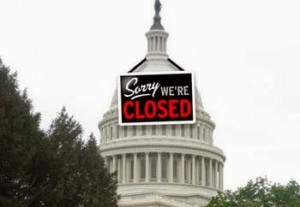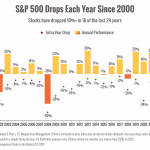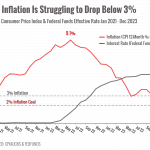Best & Worst Investing Advice During the Government Shutdown
 Dan Solin wrote a good piece this week at the Huffington Post. Here are some key excerpts.
Dan Solin wrote a good piece this week at the Huffington Post. Here are some key excerpts.
This is a busy time for financial journalists and advisers. The government shutdown and the looming prospect of an unprecedented default by the U.S. Treasury in meeting its obligations have rattled investors.
When looking for advice about investment-related subjects, it’s important to keep in mind the different obligations of the person providing it. Here’s a summary:
Brokers have an obligation to provide advice that’s merely “suitable” for their clients. They don’t have to act solely in the best interest of their clients. For example, a proprietary mutual fund may be “suitable,” even though it has a much higher expense ratio (management fee) and a lower expected return than a comparable, less expensive index fund.
Registered Investment Adviser firms have a fiduciary duty to always act in the best interest of their clients. In the example discussed above, advisers with an RIA firm would violate their fiduciary duty if they recommended the proprietary fund.
The financial media have no legal obligation to viewers or readers other than what is imposed by common law (such as laws relating to libel, slander and defamation).
The financial media’s lack of a high legal standard explains the wide swing in the quality of the information it disseminates.
Here’s the underlying problem. Many investors are unable to distinguish between sound, evidence-based advice disseminated by Swedroe (and others such as Carl Richards, Jason Zweig, John Wasik, William Bernstein and John Bogle) and the wacky entertainment provided by Cramer. Especially in times of crises, those who succumb to Cramer’s nonsense may find their retirement dreams seriously affected. For CNBC and Cramer, it’s apparently of little concern, as long as those advertising revenues keep rolling in.
Read more of this great short article here.







